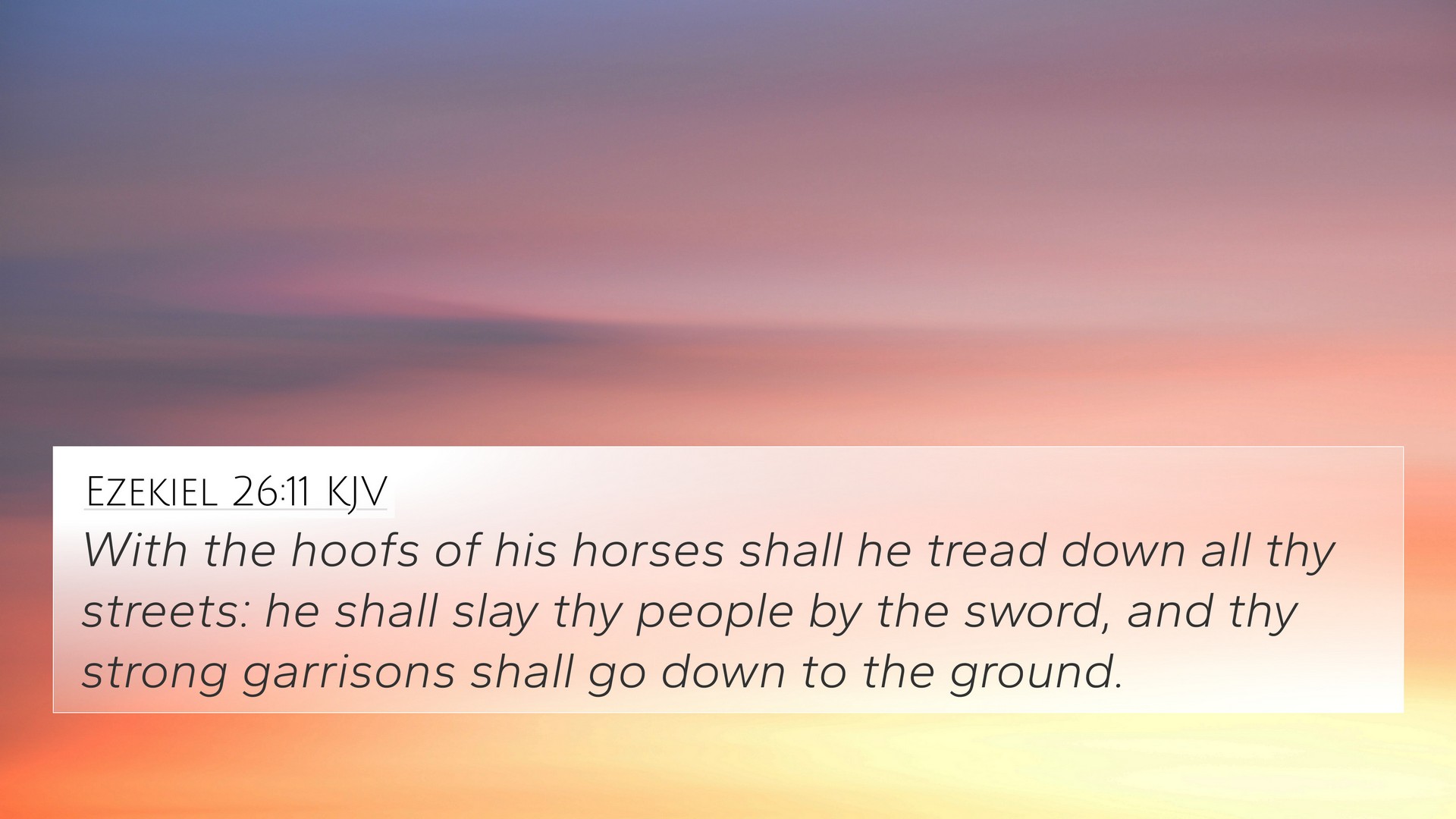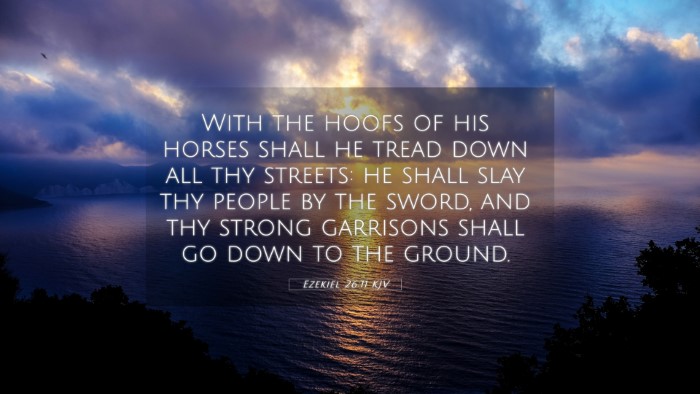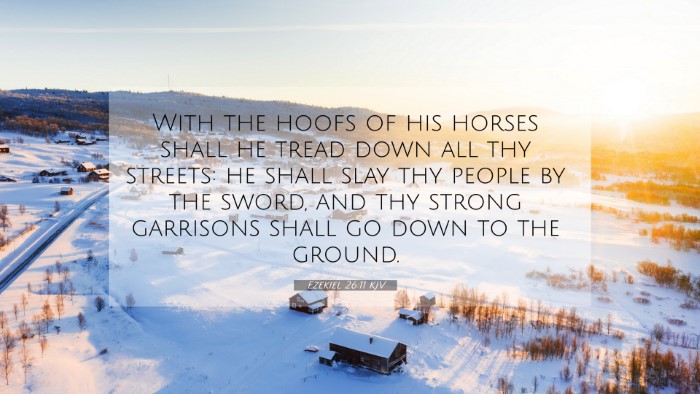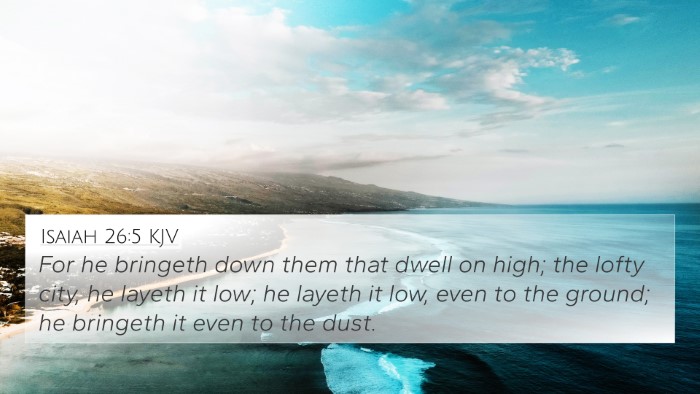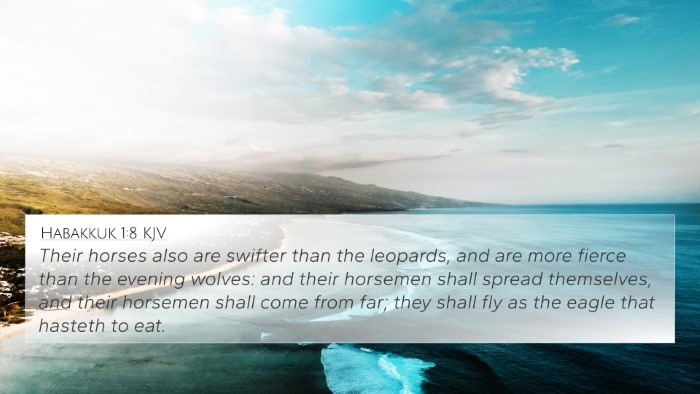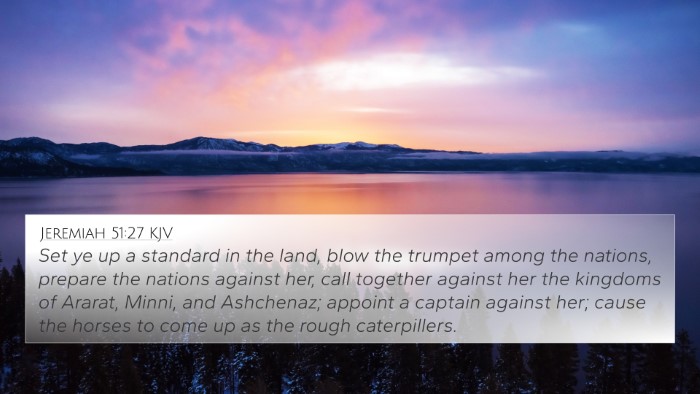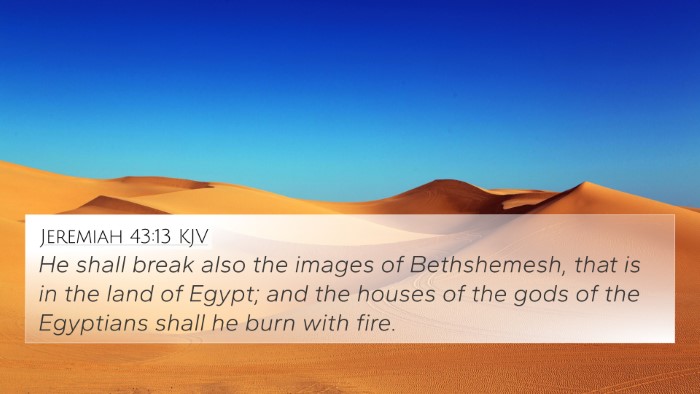Ezekiel 26:11 - Summary and Interpretation
Ezekiel 26:11 states: "With the hoofs of his horses shall he tread down all thy streets: he shall slay thy people by the sword, and the people shall fall." This verse serves as a vivid portrayal of the devastation that will come upon the city of Tyre due to the prophetic judgment from God through the instrument of Nebuchadnezzar and the Babylonian Empire.
Understanding the Context
This verse is set within a broader prophetic context where God speaks through Ezekiel about the coming destruction of Tyre. Tyre had been a prosperous trading city and a significant maritime power. God's prophecy speaks not only to the physical destruction but also to the spiritual ramifications of such devastation.
Combined Insights from Commentaries
According to Matthew Henry's Commentary, the passage emphasizes the inevitability of God's judgment. He highlights that God uses earthly powers as instruments of His will, showcasing human rebellion against divine authority. Additionally, Henry points out that the thoroughness of destruction signifies the severity of God's displeasure towards Tyre's pride and idolatry.
Albert Barnes offers further insights, mentioning that the treading down of the streets signifies thorough destruction and widespread chaos. He argues that the prophetic imagery serves to show how past alliances and strength cannot save Tyre from its inevitable fall. Barnes stresses the accountability of nations before God and warns against complacency in the face of divine judgment.
Adam Clarke elaborates on the metaphor of hoofs as representing both power and ferocity of the Babylonian army. Clarke also connects this imagery to the fate of cities and nations that disregard divine warnings, presenting a stark warning for all who exist in opposition to God’s sovereign plan.
Related Biblical Cross-References
- Isaiah 23:1-18 - A prophecy about the fall of Tyre and its lamentation.
- Jeremiah 25:22 - God’s judgment on all the kingdoms of the coast and their destruction.
- Ezekiel 27:32-33 - A lamentation for Tyre emphasizing its once-great status.
- Zechariah 9:3-4 - Foretelling the downfall of Tyre and Sidon due to arrogance and pride.
- Revelation 18:10 - A warning of judgment against great cities, drawing parallels to an eventual fall.
- Matthew 22:7 - Signifying judgment against those who reject God's invitation, akin to Tyre's fate.
- Luke 21:24 - The destruction of Jerusalem echoed in Tyre’s destruction.
- Amos 1:9 - A prophetic warning against the city of Tyre, highlighting its transgressions.
- Revelation 17:16-17 - A profound end for those aligned against God's purposes, reflecting Tyre's fate.
- Daniel 2:38 - Mentioning kingdoms of men that are subject to God’s ultimate authority.
Thematic Connections and Insights
The themes present in Ezekiel 26:11 can be viewed as a microcosm of wider biblical narratives about judgment, accountability, and the sovereignty of God. The destruction of Tyre parallels many biblical accounts where nations that oppose God are ultimately subject to His will. Scriptural cross-referencing allows a deeper understanding of God’s interactions with humanity and the consistent themes of judgment throughout the Scriptures.
Comparative Bible Verse Analysis
This verse invites the reader to engage in a deeper study of the biblical narrative surrounding Tyre and the implications of God’s judgment. Cross-referencing various texts provides rich insights into understanding how different authors inspired by God articulate the themes of divine justice and mercy.
Tools for Bible Cross-Referencing
For those looking to explore the connections between Bible verses, utilizing a Bible concordance is invaluable. It allows individuals to locate words and phrases and see how they are cross-referenced across different texts. Additionally, a Bible cross-reference guide can facilitate one’s study in understanding inter-Biblical dialogues and thematic connections.
Conclusion
Ezekiel 26:11 serves not only as a historical prophecy but also as a call for reflection concerning the justice of God. By examining this verse through the lenses of credible commentaries and other scriptural crosses, one can grasp the profound implications of God’s word in history and its relevance for today.
